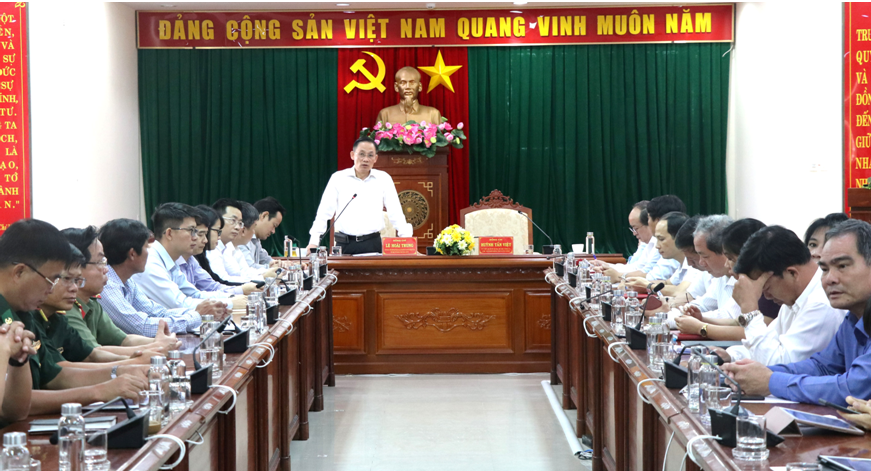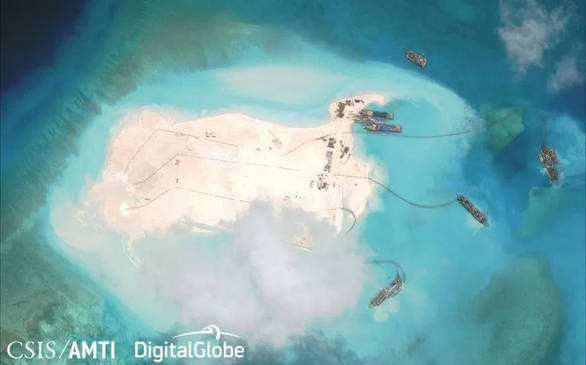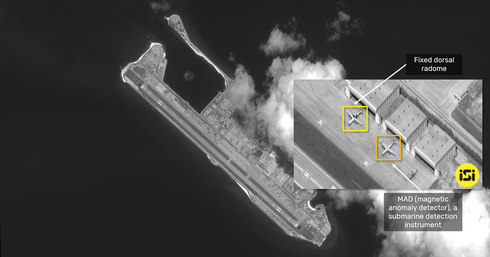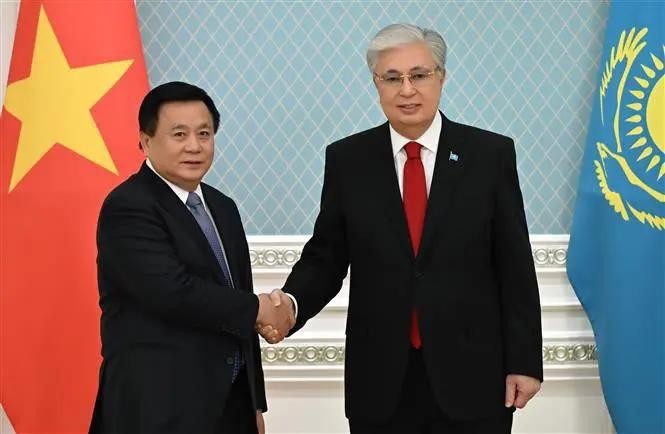China's ‘vegetable cultivation’ on Vietnam's islands a bogus ploy
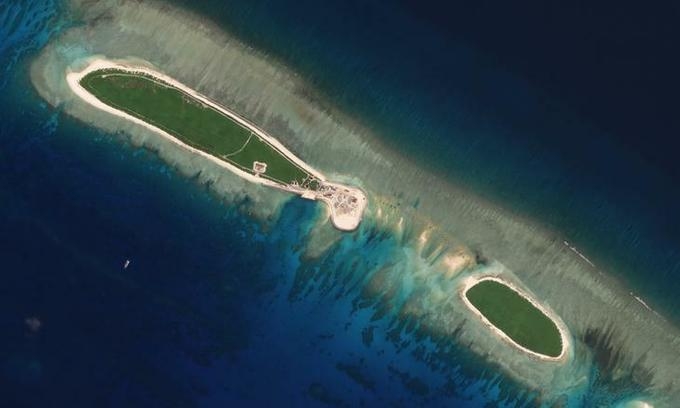 |
| Satellite photo shows North Island, part of the Paracel Islands in the South China Sea, September 2017. Photo by Planet Labs/via Reuters. |
In an article published May 19, Chinese newspaper Global Times reported that China's navy had used a new technology to harvest 750 kilograms of vegetables on an feature of the so-called Xisha Islands, a name illegally given by China to Vietnam’s Hoang Sa (Paracel) Islands.
The newspaper claimed that China being able to harvest vegetables on the island "counters international theories, including those in a 2016 arbitration, that islands in the South China Sea could not support communities of their own," and therefore reinforces Beijing's claim that the structures it illegally occupies in the Hoang Sa Islands are proper islands with exclusive economic zone and continental shelf.
Ca, former director of the Vietnam Institute of Seas and Islands under the Ministry of Natural Resources and Environment's Administration of Seas and Islands, dismissed this argument saying it was just China's latest move in its efforts to "legitimize" its illegal claims in the East Sea, known internationally as the South China Sea.
Ca, now an associate professor at the Hanoi University of Natural Resources and Environment, said that with the latest move, China wants to prove that the geographical features in the Hoang Sa Islands meet the condition of being able to "sustain human habitation or economic life."
If the features meet this condition, China could argue that they are proper islands and could use the straight baseline method to connect the outermost points of the above-water structures in archipelagos claimed by it to form an area where Beijing illegally claims "historic rights," which would be even larger than the area covered by the infamous nine-dash line, which has already been rejected internationally.
According to the United Nations Convention on the Law of the Sea (UNCLOS), in localities where the coastline is deeply indented and cut into, or if there is a fringe of islands along the coast in its immediate vicinity, the method of straight baselines joining appropriate points may be employed in drawing the baseline from which the breadth of the territorial sea is measured.
China seized a number of islands in the eastern part of Vietnam's Hoang Sa Islands by force in 1956, then seized the remaining islands in the archipelago by force from South Vietnam in 1974. Since then, China has been seeking ways to illegally claim sovereignty over a large part of Vietnamese waters.
Ca noted that Article 121 of the UNCLOS states that "rocks which cannot sustain human habitation or economic life of their own shall have no exclusive economic zone or continental shelf."
He said that prior to the Permanent Court of Arbitration's (PCA) ruling on the South China Sea arbitration between the Philippines and China in 2016, which China lost, there have been several different interpretations of the phrase "cannot sustain human habitation or economic life of their own," as this determines the legal status of structures that are above water at high tide.
There have even been arguments that with the development of science and modern technologies, all structures that are above water at high tide could "sustain human habitation or economic life of their own" if appropriately constructed and could be considered an island, Ca said.
However, he added, the PCA's 2016 ruling had put an end to these discussions.
In its ruling, the court concluded that an entity can "sustain human habitation or economic life of their own" if the entity, in its natural condition, could "sustain either a stable community of people or economic activity that is neither dependent on outside resources nor purely extractive in nature."
Using this interpretation, the PCA determined that structures in the Truong Sa (Spratly) Islands, which also belong to Vietnam, had never sustained any stable community and economic activities there had always been purely extractive in nature so they are just rocks with no exclusive economic zone or continental shelf.
When applying this interpretation to Hoang Sa Islands, Ca noted that up until the late 19th and early 20th century, the only human beings to reside were temporary communities of fishermen and other resource exploiters, including soldiers of Vietnam's Hoang Sa Fleet. Additionally, a number of Japanese companies had conducted fishing and guano mining in the area.
As these activities did not create a stable community and economic activities there were purely extractive in nature, the structures in the Hoang Sa Islands could not be considered islands and have no exclusive economic zone or continental shelf.
"Therefore, China's interpretation is in reality a distortion of international law," Ca stressed.
As for Vietnam's standpoint, Ca affirmed that Hanoi has always highly regarded the PCA's ruling.
In a note to the United Nations in late March, Vietnam clearly stated its standpoint that the straight baseline cannot be used to connect the outermost points of the outer structures, and that the above-water structures in Vietnam's Hoang Sa and Truong Sa islands are rocks that cannot sustain human habitation or economic life of their own, and so have no exclusive economic zone or continental shelf.
Vietnam also asserted that China's declaration on its "historic rights" over the waters in the region exceeds UNCLOS regulations, so it is illegal and invalid.
Commenting on China's cultivation of vegetables on the Hoang Sa Islands, Vietnam's Foreign Ministry deputy spokesman Doan Khac Viet Thursday asserted that all activities on the Hoang Sa and Truong Sa Islands without Vietnam’s permission are violations of Vietnam’s sovereignty and international law.
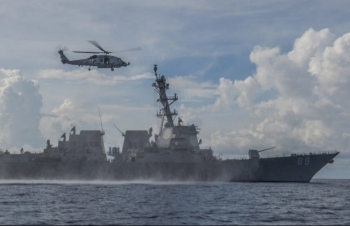 | US sends another warship to challenge China’s South China Sea claims A US Navy warship again challenged China's vast South China Sea claims Thursday as US-China tensions run high. |
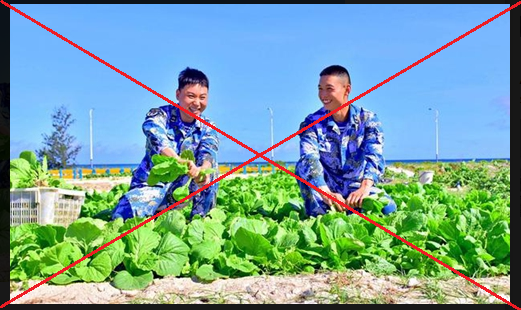 | All activities without Vietnam’s permission in Paracel and Spratly archipelagos valueless "All activities without Vietnam’s permission in the Hoang Sa (Paracel) and Truong Sa (Spratly) archipelagos are valueless," stressed Vice Spokesman of the Foreign Ministry Doan Khac Viet ... |
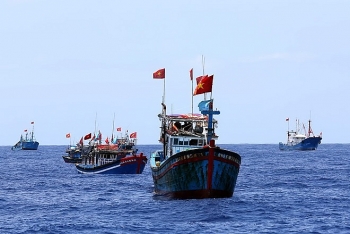 | Vietnam objects to China's recent fishing ban in East Sea Vietnam resolutely rejects China’s unilateral decision to ban fishing in the East Sea, Vietnamese Foreign Ministry spokesperson stressed, adding that Vietnam has sufficient historical and legal ... |
Recommended
 Seas and islands
Seas and islands
Vietnam Endorses Common Voice on Ocean Jurisdiction
 Seas and islands
Seas and islands
Dialogue as Key to Settling Disputes and Advancing Law of the Sea
 Seas and islands
Seas and islands
RoK Navy Ship Pays Friendly Visit to Da Nang City
 Seas and islands
Seas and islands
Naval Region 5 Promotes Reading Culture, Fosters Patriotism
 Seas and islands
Seas and islands
Coast Guard Region 2 Command Hosts Philippine Coast Counterpart
 Seas and islands
Seas and islands
Vietnam - Thailand Navy: Coordination to Well Address Problems at Sea
 Seas and islands
Seas and islands
Honoring the Fallen: Incense Offering for the 37th Anniversary of Gac Ma
 Seas and islands
Seas and islands

